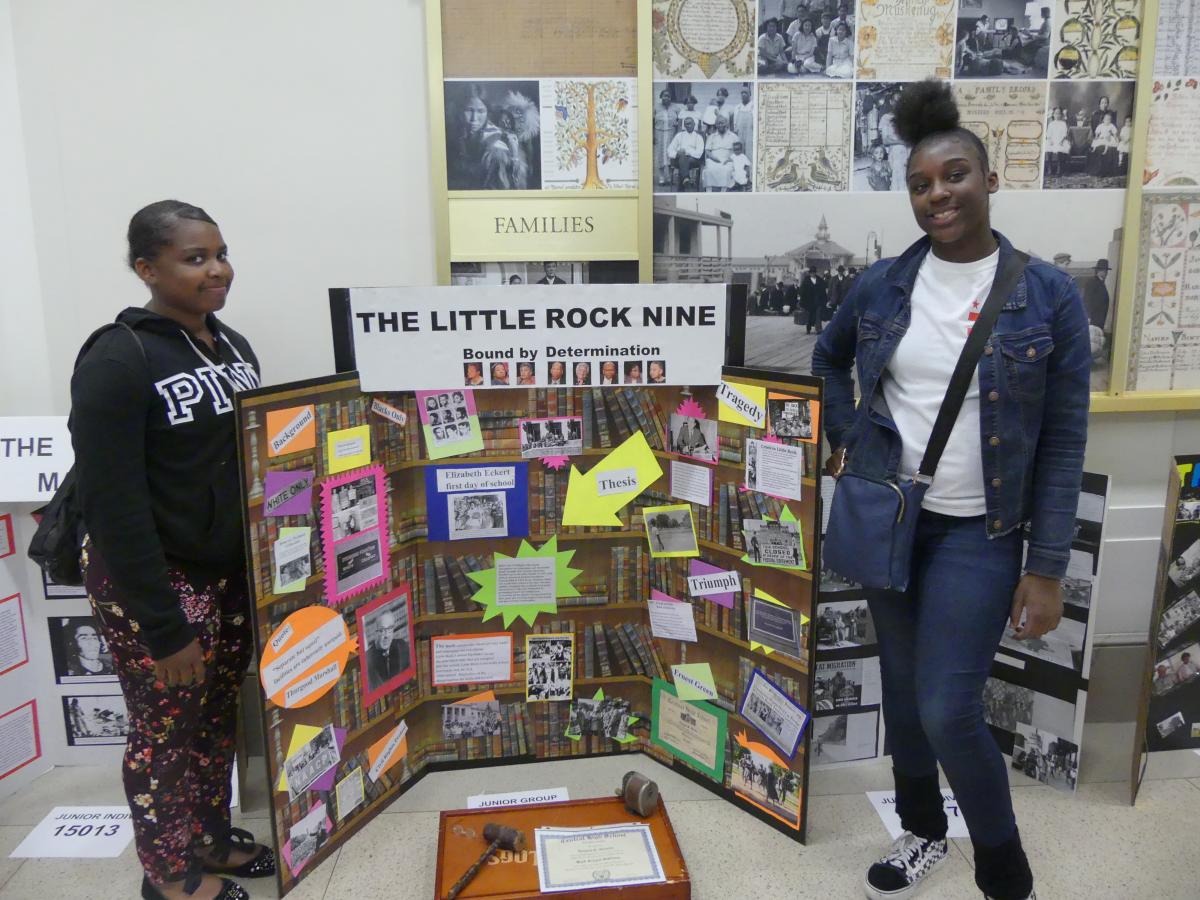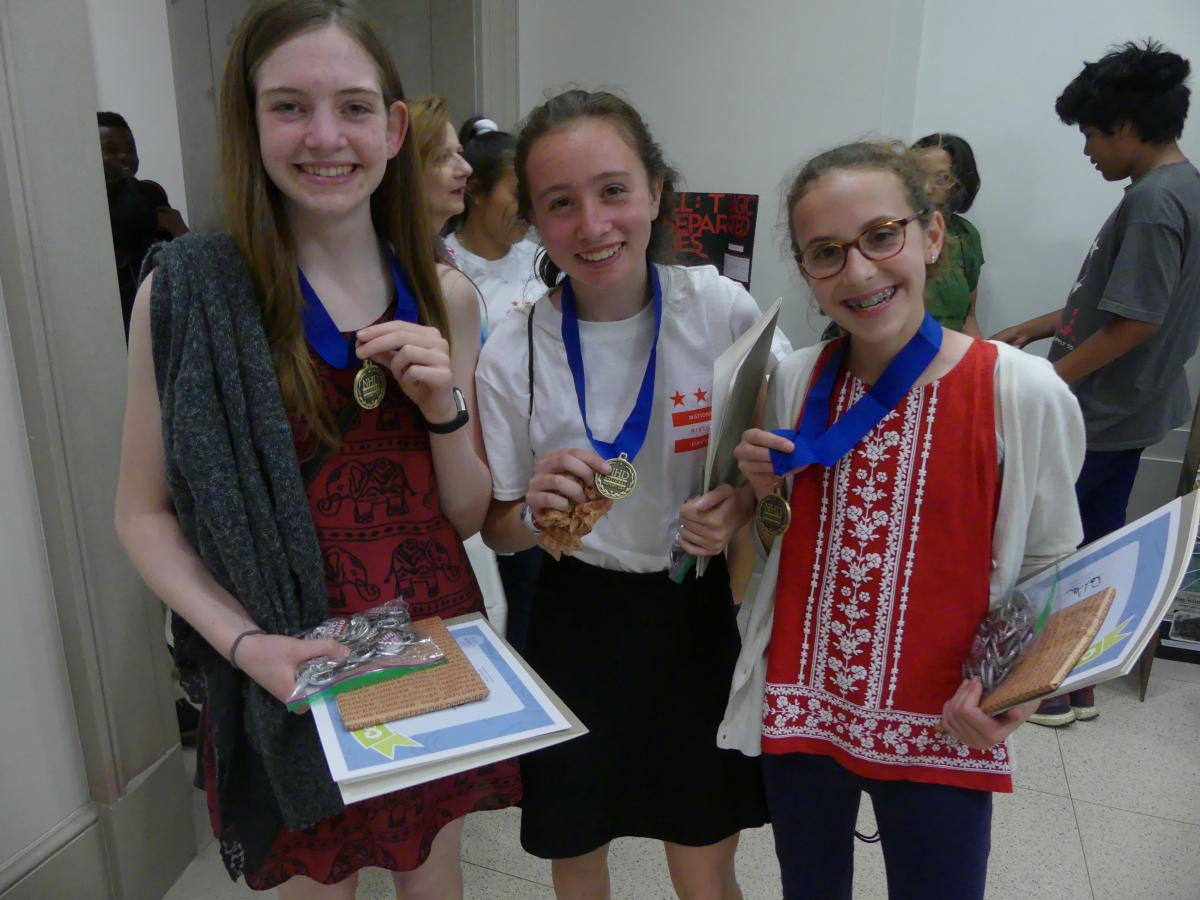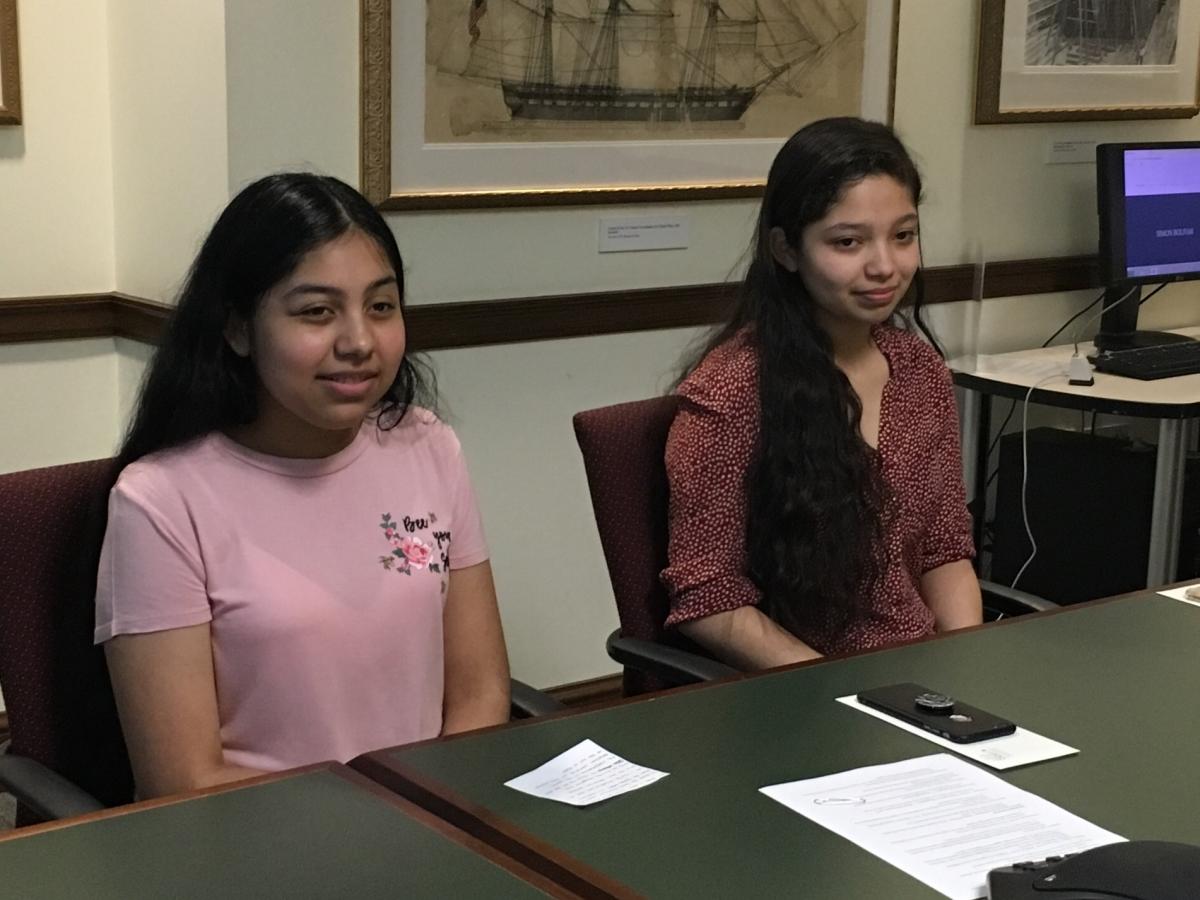
Archives Hosts Annual DC National History Day
By Kerri Lawrence | National Archives News
WASHINGTON, April 12, 2019 — Each year, the National Archives and Records Administration hosts middle and high school students from the nation’s capital for National History Day. This year, more than 325 middle and high school students from the District of Columbia gathered at the National Archives Building in Washington, DC, on April 10-11, to enrich their understanding of history and share their research on everything from Linear B—the written language of the ancient Minoans—to women’s fashion in the 1920s, Japanese American internment during World War II, and the tragedy of 9/11.
National History Day is a year-long academic program focused on historical research, interpretation, and creative expression. By participating, students become writers, filmmakers, web designers, playwrights, and artists, as they create unique contemporary expressions of history.
More than 2,000 DC-area students from public, charter, independent, and home schools participate each year—with more than half a million middle and high school students participating nationwide, according to the nonprofit educational organization National History Day.
Every year, National History Day frames students’ research within a historical theme. The theme for this year’s competition is “Triumph and Tragedy in History.” Students can then select their own research topic within that framework.
The theme itself is chosen for its broad application to world, national, or state history and its relevance to ancient history or to the more recent past, according to DC National History Day coordinator Missy McNatt, an education specialist with the National Archives.
McNatt said that the theme offers a unique opportunity for students to think beyond the antiquated view of history as mere facts and dates. Students are able to delve deeper through an active exploration of real-world challenges and problems into the historical content, developing perspective and understanding.
“We want students to learn the stories of the people and events of the past and how those stories might inspire them to become a civically engaged citizen,” McNatt said. “In this way, the notion that ‘history repeats itself’ can be such a positive, as the students learn what came before them to shape the future and make the world a better place for us all”
Students compete either individually or as a team, using exhibits, documentaries, performances, websites, or papers to share their research with judges and peers. Judges include National Archives professionals as well as humanities scholars, teachers, librarians, and other professionals within the community.
One team, 10th-grade students Yenny Guevara and Yoselin Viveros from the Capital City Public Charter School, presented their research and a website that they created for the competition to a panel of three judges. The students shared that they chose Simon Bolivar as their research subject “to learn more about the Latino culture and its rich history,” Guevara said. “In school, we learn so much about American history. This was a great way to learn history that related to our own culture and heritage.”
Andrea Shahmohammadi, an archives specialist at the National Archives, was on the panel of judges that interviewed Guevara and Viveros. She concurred with the importance of allowing students to actively engage in research that relates to their personal interests.
“Representation matters,” she said. “What a great opportunity for these women to make a personal connection to history. I’ve been a judge for more than 10 years now, and I truly enjoy seeing how the students engage with our records.”
The National Archives has hosted DC National History Day since 2006. Each year the competition grows in popularity, introducing more students to National Archives holdings, McNatt said. She and other members of the agency’s education department offer several workshops and help sessions to teachers and students throughout the year. The agency also shares online resources for them to access for the competition and additional academic study.
“The National Archives is the nation’s recordkeeper,” McNatt said. “We hold billions of primary sources. Many can be incorporated into National History Day research and projects. What a great opportunity to inspire the next generation of researchers and familiarize young people with all the agency has to share.”
Today’s competition is part of a larger series of National History Day contests. Students began their journey by presenting their projects in their classrooms and schools. Top entries from those levels earned entry into their state/affiliate-level contest. The top two entries in every category from this week’s competition will be invited to the national contest to be held June 9-13, 2019, at the National Archives at College Park.
Of the 325 DC students participating this year, approximately 105 were recognized for their research projects, some earning the right to move on to a national competition to be held this June. At the national level, DC students compete against other students from all 50 United States, Guam, American Samoa, Puerto Rico, and international schools in China, South Korea, South Asia, and Central America.


